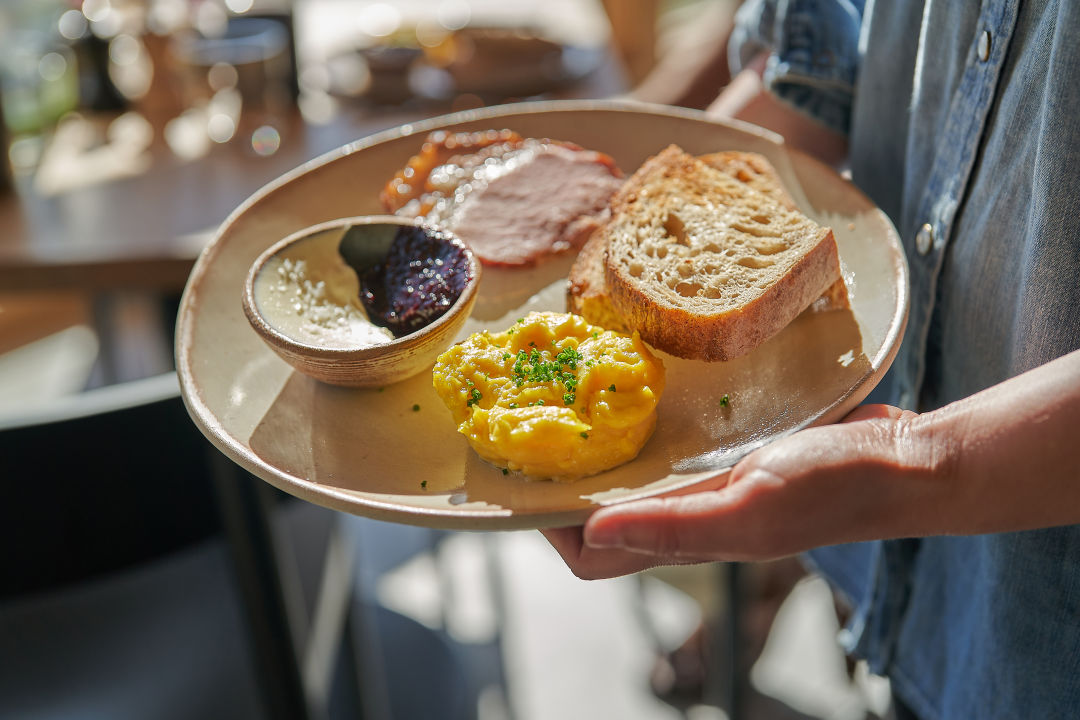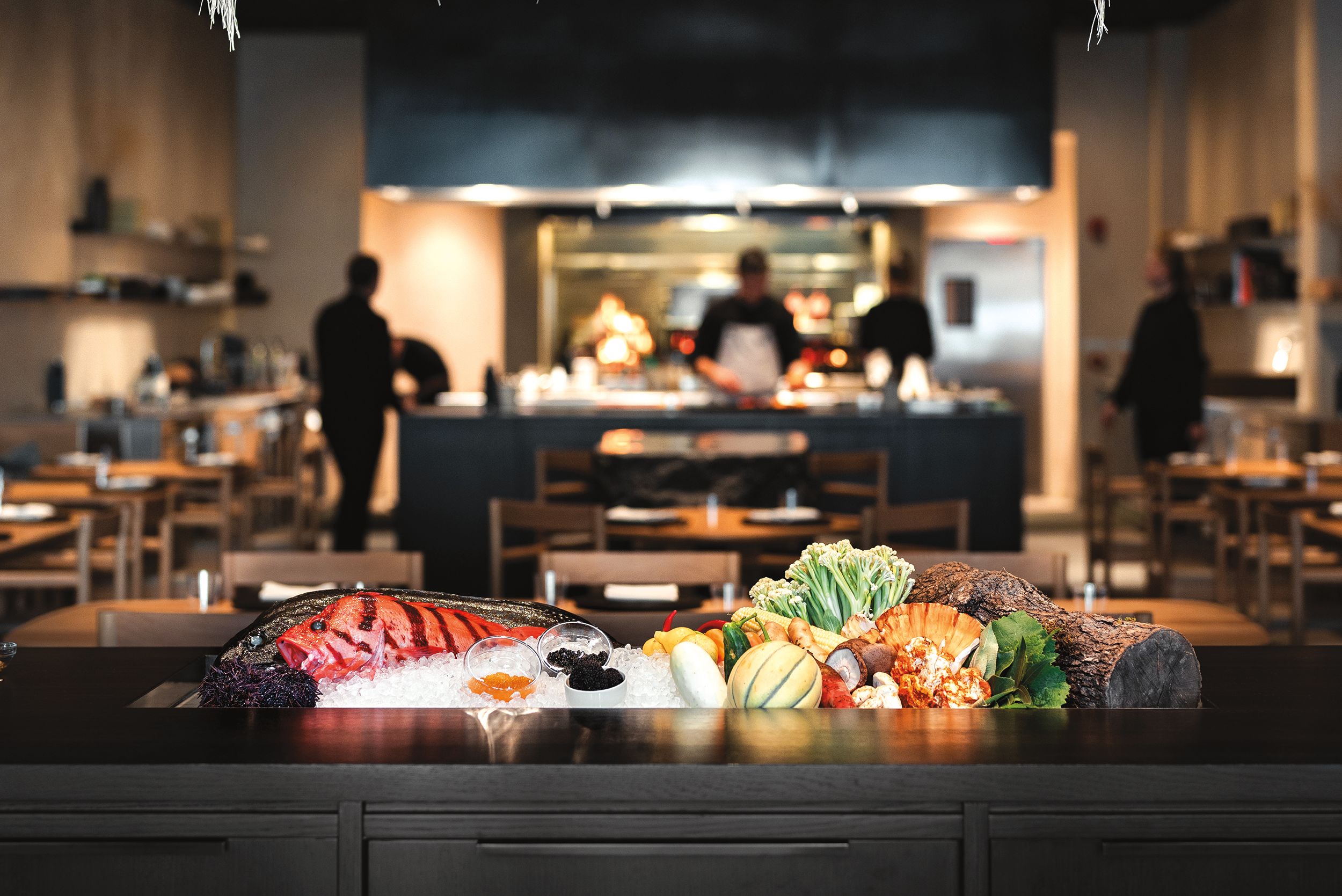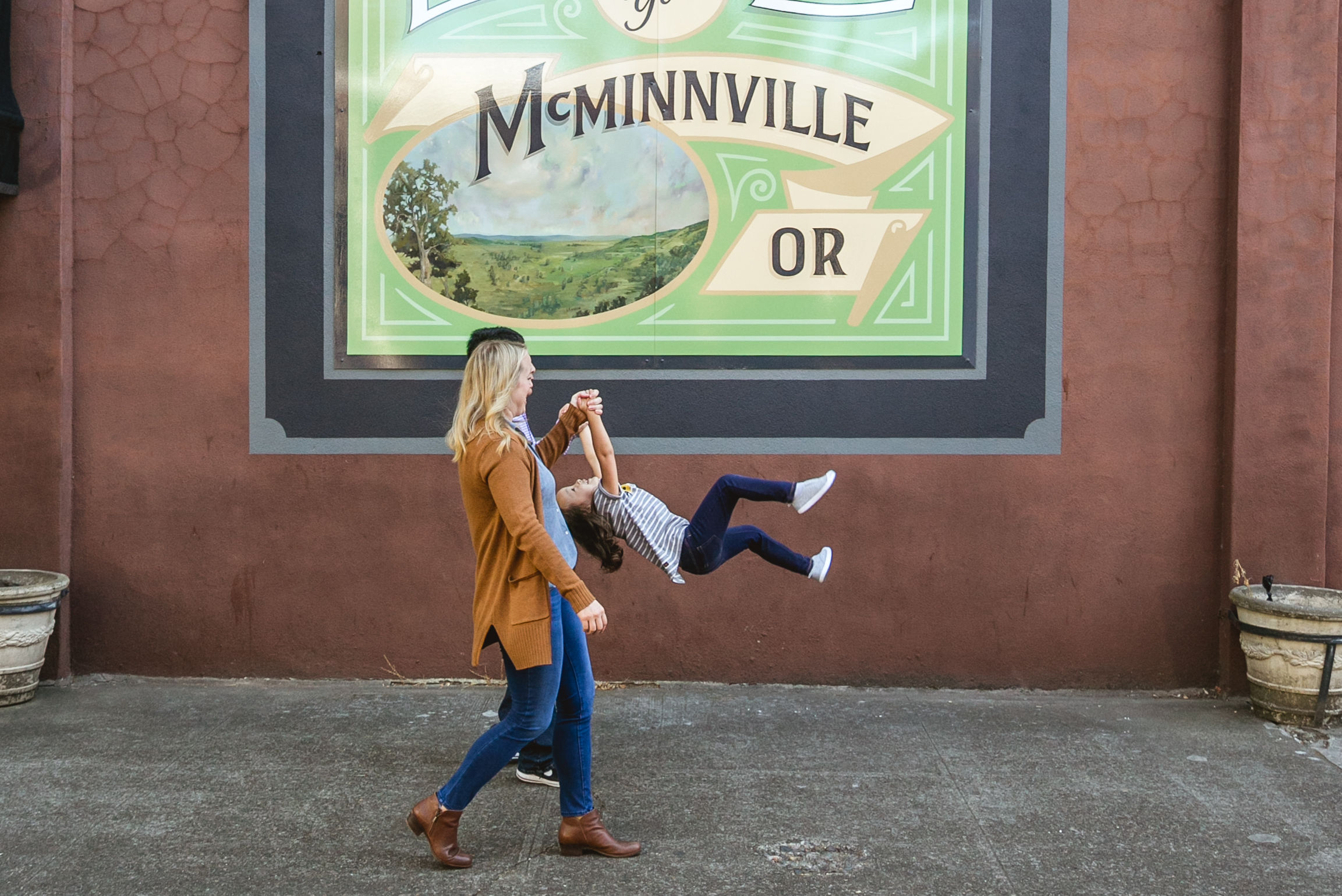The Luxe Conglomerate Quietly Gaining Ground in the Willamette Valley

Image: courtesy Gregor Halenda
In 2023, on a weekend in the Willamette Valley, a Lyft driver planted a paradox in my mind. I was headed to Okta, which at that moment was the most talked-about tasting-menu restaurant in the state. The driver didn’t precisely roll his eyes when I mentioned it but performed a flutter of the palpebra all the same. “I heard that takes a long time,” he told me. “Like three hours or something?”
Then I told him that the next night I would be checking out Humble Spirit, now called Grounded Table. The McMinnville locavore haunt is part of the Ground, an ambitious network of businesses that includes a kind of eco-hotel, boutique rental homes, working farms and farmstands, and an event venue. The driver’s tone shifted completely. “I was just there for my wife’s birthday!” he said, catching my eye in the rearview mirror.
Fear of a “Napa-fication” of the Willamette Valley has loomed for years. A Food & Wine article from 2023 depicts big money chasing a cooler climate, grafting a clonal varietal of California luxury onto the comparatively humble rolling hills, and—the worry is—ruining everything special about the place. In terms of wine, this looks like storied estates from elsewhere “validating” the area by buying local vineyards: entities like Constellation Brands (which purchased Lingua Franca), Silver Oak (which purchased an Erath vineyard), Chateau Ste. Michelle (which purchased A to Z), Jackson Family Wines (which purchased WillaKenzie, Gran Moraine, and Penner-Ash), and Champagne Bollinger (which purchased Ponzi Vineyards).
Out-of-state wineries have found success quietly growing grapes in Oregon alongside folks who’ve been here for generations. The hotel and lifestyle side of things, however, looks more like a pile of large-scale proposals to build over precious farmland, which sometimes raise flags and disappear before breaking ground. The Allison, opened in 2009, is the biggest hotel to find traction, primarily because it seems invested in and respectful of the existing community. When they opened in 2022, Okta and its attached Tributary hotel felt like a similar play, despite being funded by California’s Jackson Family Wines, one of the top 10 wine producers by volume in the US. But the restaurant closed and then refashioned itself in a more casual image this year. The hotel expanded at the same time, if meagerly, from eight to 10 rooms, and added a café.

Image: courtesy Gregor Halenda
In so many ways, wealth is changing the valley. But conversation around the Ground is different. Intentionality comes up again and again when you mention the Ground and its cofounder Frank Foti around town. Originally from Cleveland, Foti moved here in the mid-1980s before returning to Ohio to take over his family’s construction company. Then he expanded into shipyards and maritime manufacturing in the ’90s with Vigor Industrial (now the Vigor Marine Group). A series of buyouts beginning in 2019 made him a so-called “high-net-worth individual,” or HNWI (pronounced hin-wee), and he’s parlayed that ample flowing liquidity into a patchwork of properties in Yamhill County alongside his wife, Brenda Smola-Foti.
She kicked this whole thing off, acquiring the original 23-acre regenerative farm back in 2008, before she and Foti were married. The working farm, called Tabula Rasa, and Smola-Foti’s commitment to valley farming issues (including with the legislature) seem to lend the project a baseline credibility with locals.
Today 120 staffers serve the Ground’s nodes. At the center of it all is Inn the Ground, a nine-room, earth-sheltered bed-and-breakfast designed by GBD Architects, the firm behind the building that houses Portland’s Ritz-Carlton. It’s stunning, but, in contrast to that glass skyscraper, Inn the Ground all but dissolves into the surroundings; one wakes each morning to a panoramic view of the mountains, framed by water retention landscaping that doubles as plunge pools (designed by Elemental Ecosystems), pollinator gardens, and roaming cattle. There’s also a full breakfast sourced from the farm, a gigantic pickleball and tennis court health complex, and a weekly guided meditation practice (Mindful Mondays).

Image: courtesy Gregor Halenda
Foti is also kind of at the center of it all. I spent a day with him this spring, touring the Ground’s 450-plus acres in one of the property’s electric Rivian SUVs. “This whole thing used to be a walnut plantation,” he tells me—and it feels a little bit like that scene in Jurassic Park, where Dr. Hammond shows the gang ’round the brontosaurus paddock. (I had started referring to the compound as Franklandia in my head by this point.) We pass a turkey vulture having lunch in one of the pastures and bump into a couple of local winemakers, including Josh Bergstrom of Bergstrom Wines, stopping by to play pickleball.
We roll by a six-acre market garden, set to produce a summer’s worth of “serious-ass veg,” Foti says. He’s charismatic, even avuncular, a 68-year-old guy who calls a perfect stranger “brother.” But he’s also quick to sincerity, which sets up a strange duality. “Love,” he would remind me throughout the day, is the principle around which this whole mini-empire orbits (the Ground’s website is theground.love). And at the same time he’s mentioning regular lunches with major politicians, who seek counsel, and, one suspects, contributions.
He’s not without his quirks. At an office space that appeared to be Ground HQ, I noticed a half dozen large stuffed elephants sitting around a conversation pit. “That’s so we remember the elephant in the room,” Foti tells me. “If we name what’s uncomfortable, then we let the space in between happen.”
As long as we’re talking about elephants, let’s name them: Foti has the right vibe for the valley, but he’s comfortably in the 0.01 percent, which makes it difficult to take all of these places with names about being in the ground, or down to earth, at their word. Sometimes our conversations were disarmingly earnest; other times they felt like an Obama-era TED Talk. Here’s a man who made his millions on heavy industrial shipbuilding (none of those websites end in .love) now
acquiring hundreds of acres of pristine valley land. But his vision for what the Ground could be—a community hub, a meditation retreat, a working farm, a restaurant group, a health resort, all this but somehow less imposing than it sounds—has struck a chord.
Later in the day he pulls over the Rivian next to the Oregon native wildflower pollinator garden. Mount Hood looms positively enormous, the witch hat of its peak offset by yarrow and lupine, milkweed and goldenrod at our feet. “I’m trying to show people that they don’t need to use ChemLawn to grow something beautiful,” he says, gesturing to the flowers. “This place is going to outlive us all.”
We head into McMinnville and visit the Pub, the new location from the team at Grounded Table. The restaurants are the most public-facing touchpoint of the project, with Tabula Rasa’s chicken, pork, beef, and vegetables featured throughout. Chef Sarah Schafer serves a small and elegant à la carte menu at Grounded Table, with dishes like roast chicken with schmaltz jus and salads that name their radish varietals. As if to prove the concept, meals conclude with a house “Oreo” made from Tabula Rasa’s own hog lard, served alongside milk from valley microdairy Schoch Creamery.

Image: courtesy Gregor Halenda
“This is all about love,” Foti tells me again. But I gather it’s also all about details. When he asks me for my feedback on the BBQ platter we’re sharing, I offer respectfully that perhaps the hot link could use a little more spice. His face takes on a crestfallen quality that surprises me with its depth of feeling. Many in Foti’s tax bracket delegate every earthly responsibility, and meanwhile here’s Frank, political power broker and valley acreage collector, sweating the hot links.
This seems to be what separates this story—of someone with a lot of money setting up in Oregon wine country—from many others that have garnered dubious reactions from locals. Perhaps it’s the pickleball, or the fact that the hotel is buried underground. Perhaps it’s in the details. Other than centering wine, the Ground’s Napa-fication doesn’t look much like Napa. And it seems to be growing, in a short few years but somehow slowly, into a vision of what this transformed, moneyed Willamette Valley might look like.
Foti keeps telling me the Ground is about love, but I think it’s something more like legacy, like that chemical-free flower garden he insists will outlive us all. Earlier in the day we sat together by a rushing patch of Johnson Creek, which wends its way through the property just up a trail from the pickleball complex. We talked about family and life and business, and he said something that was actually pretty profound, no fooling: “I will only own this part of the creek here for a very short time. And then it will go on without me.” It was a storybook moment, and I want to believe him. But it also strikes me as exactly the sort of thing I’d like to say to a journalist someday, preferably as I present my own several-hundred-acre Willamette Valley eco-resort complex, should the whims of capitalism arrive in my favor and make me rich as Frank.




